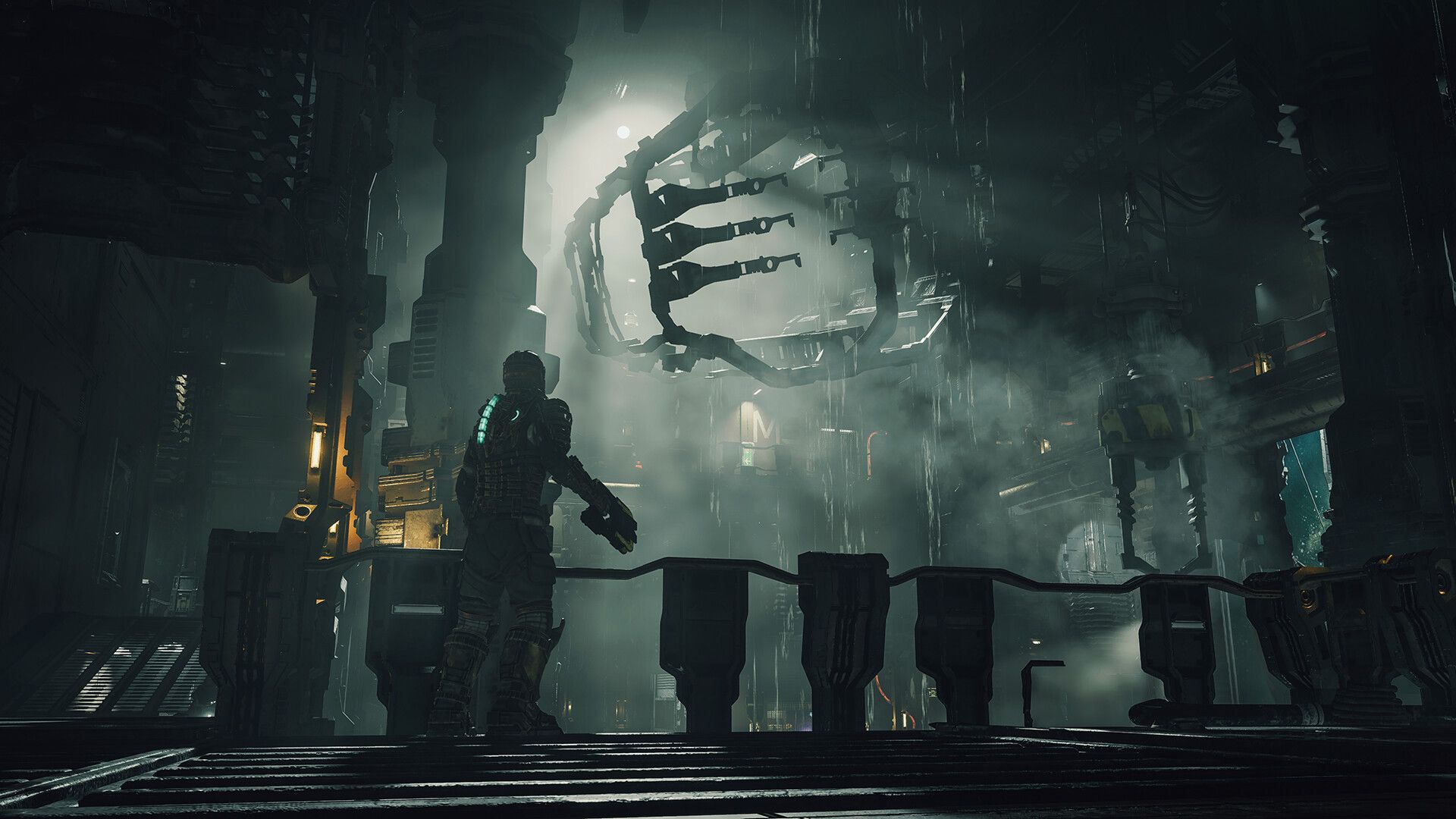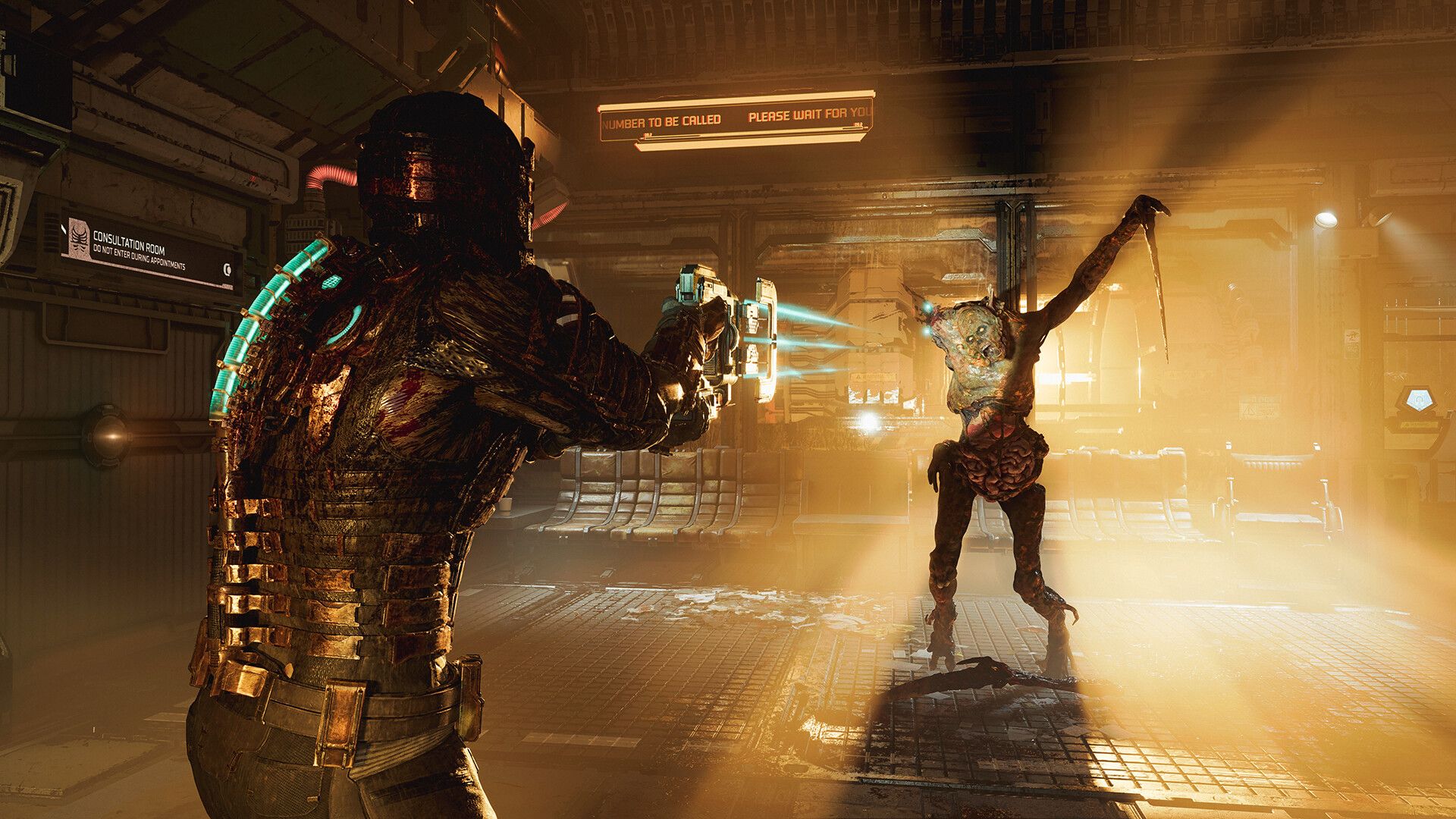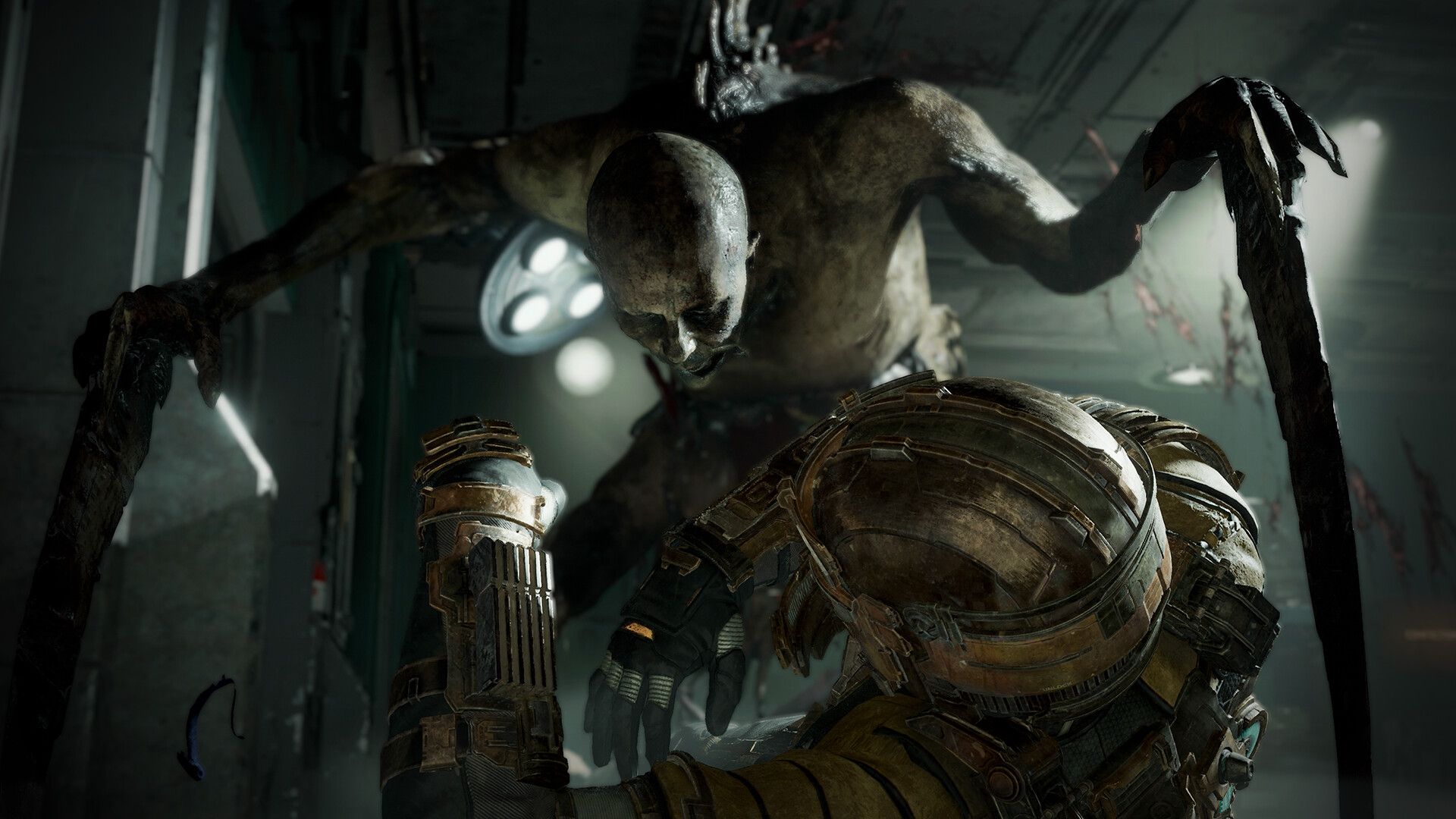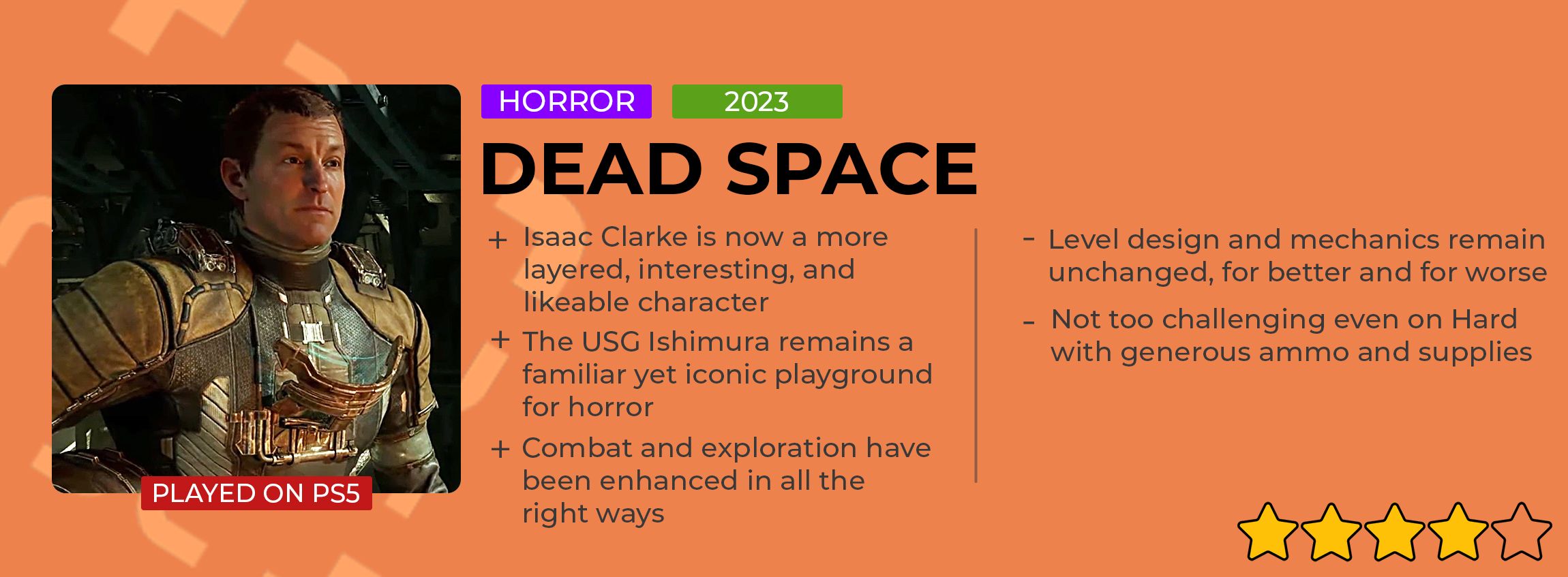Dead Space has always been about slow-building dread simmering over into a cavalcade of unsuspecting horrors. Ahead of the remake, I felt that same tension rising – what if it all went wrong? Thankfully EA and Motive have been more faithful to the survival horror icon.
This medium has spoiled us with the likes of FF7 Remake, reimaginings that are more reboots than revivals, uprooting our memories and having the bravery to cast them in a very different light. Dead Space is the opposite. This new release carefully retreads the original, but still looks and plays brilliantly. Level design is identical, while enemies can be torn apart in ways that feel morbidly nostalgic for returning players like me. I know exactly how to survive aboard this doomed mining craft, but its absence brings with it welcome changes.
Giving Isaac Clarke a voice never takes away from the claustrophobic terror that makes Dead Space so legendary. Even when our sulky-faced hero responds to fellow characters or takes initiative aboard the Ishimura, a permanent sense of fragility remains. I never felt safe gingerly walking through darkened corridors I’d seen dozens of times previously, knowing that just enough had been changed to unsettle. New enemies, audio logs, and nuanced twists turn this survival horror classic into something surprisingly new, yet safely familiar.
From the opening moments, there is a deeper expression of agency than in the original. You can peer across the humble innards of your initial vessel, talking about how, after this routine mission, you can catch up with your partner and chase more rewarding jobs across entirely different systems. Kendra Daniels, a spiteful woman in the original with a clear desire to betray you, is softer spoken and more empathetic here, talking about how she loves to dote on her girlfriend between shifts when a rare moment of silence emerges. All of these people are characters now, not merely blank slates to be murdered when things get all spooky.
Of course, the writing is still a fairly unimaginative riff on Aliens and Event Horizon, filled with super evil hyper-corporations and fanatical religions responsible for this outbreak, as we struggle to survive and find a way home. But a second pass on the original material and a clear desire to expand on it works wonders whether it be through new performances for each character or moment-to-moment dialogue that no longer paints Clarke as an obedient errand boy responsible for doing absolutely everything no matter how suicidal. It is clear that Clarke, Daniels, and Hammond must work together in order to survive, with major set pieces and events being either reworked or rewritten to better accommodate a stronger narrative.
I found myself reading through each text log and slowing down my own pace to soak in all the audio logs, even if I already knew the broader beats. The visual and tonal execution is stellar, and it’s easy for the USG Ishimura to sink its fangs in deep. The ship feels like a real place now too, no longer a truncated world divided by long loading screens between each chapter. Now they begin and end without once interrupting the action, Isaac making his way to new sections of the ship through fresh areas made to link them all together. The trams are still here as a fast travel option, yet I’d often ignore them in favour or trudging through the ship on my own terms to revisit once locked doors with upgraded security clearance. These seamless additions expand the game in subtle but effective ways to improve on the original.
There’s also new side quests; fairly simple tasks such as collecting rigs to earn hidden weapons and armour or pursuing the hologram of your presumably alive girlfriend before uncovering her makeshift hideout. Clarke responds to these pursuits too, finding a reason to leave his main objective behind that doesn’t feel hamfisted, often encouraged by Daniels or Hammond to seek out all available options. This remake would have been much weaker without the tight design of its sprawling locale, but adding equally contained additions such as new storage rooms and tram networks somehow works.
Combat and exploration is where Dead Space makes the most minimal changes. Slicing limbs off different breeds of necromorph still feels incredible after all this time, so Motive has opted to refine instead of redefine. If anything, the game is easier than it’s ever been. I’m a purist, so my review playthrough was done on the hardest standard difficulty setting with a plasma cutter as my only means of defense. The rest of my arsenal was either sold or surrendered to storage to ensure Isaac Clarke was an engineer and not a space marine.
Aside from a few accidental deaths from waltzing too close to insta kill foes or into gravity wells, I was the sharpest welder in the workshop. A much faster standard rate of fire and generous ammo resources in the majority of environments meant that, with an accurate shot, I never felt threatened. Isaac also moves faster than I remember, so escaping bad situations is not only easier, but less risky too. I am meant to be hulking about the place in a domineering suit of impractical armour, yet it feels like I’m wearing nothing at all. Stupid sexy Isaac.
Reduced challenge fortunately doesn’t take away from the expertly crafted design of levels and enemies. Jump scares and sudden encounters with hordes of enemies come across as far less scripted thanks to improved AI, with even repeat visits and checkpoint reloads eager to shake up otherwise pedestrian firefights. It is rare for a contemporary horror game like this to keep me on my toes, let alone make me jump at shadows that have been ingrained in my mind for decades.
A few weapons have been enhanced too, either through new secondary fire modes or full overhauls. Not only do these fit better within the context of an engineer’s repertoire, but are much more satisfying to use and upgrade. Chances are you won’t max all of them out in a single playthrough, but the tantalising promise of new armaments encourage you to jump into New Game+ and seek out the alternate ending.
Using the more powerful options felt like cheating though, so I’d often roleplay as a bit of a coward with limited ammo to really up the horror. Yes, I am a very cool gamer. While these small adjustments are plentiful, the basics remain untouched, so returning players with only fleeting memories will love it like they always did, and for newcomers it hasn’t aged a day.
Dead Space is a triumphant remake that draws strength from familiarity instead of allowing its archaic origins to become a vice. This is now the definitive version of Isaac Clarke’s first chapter, one that doesn’t aim to reinvent his character, but to outfit him with a more relatable and nuanced arc that will likely set the stage for other games to come. Improved performance, a greater incentive to explore, and a crux of combat and scares combine to turn what was once a horror classic into a modern gem. Shame it’s a bit too easy, though.
Source: Read Full Article



